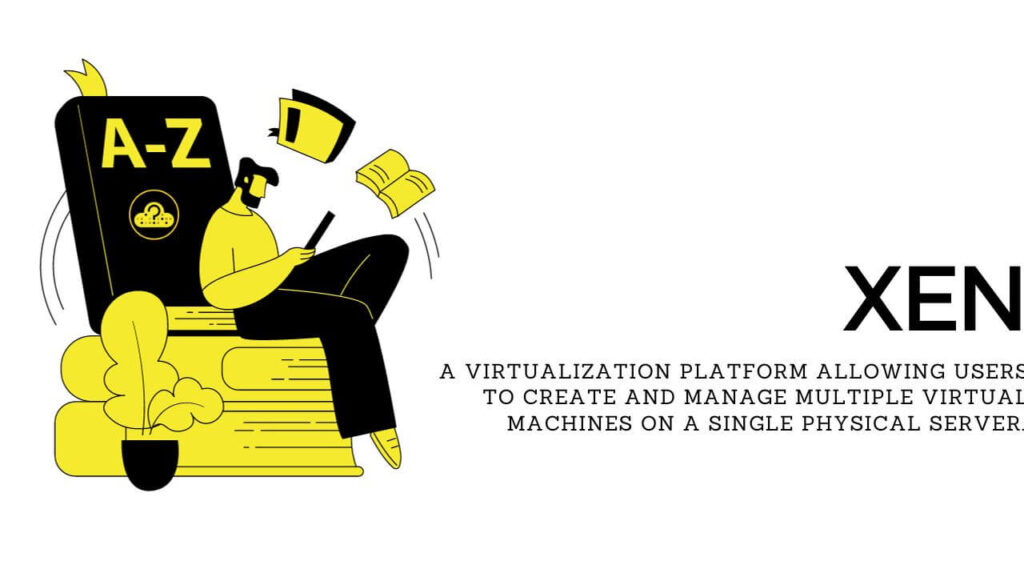What Is XEN Server?
XEN Server, also known as for XenServer, is a virtualization platform that enables users to create and manage multiple virtual machines on a single physical server. It provides a robust and efficient environment for running diverse operating systems concurrently, optimizing resource utilization and enhancing scalability.
- Short Definition:
- A virtualization platform allowing users to create and manage multiple virtual machines on a single physical server.
- Extended Definition:
-
XEN Server, a powerful virtualization platform commonly known as XenServer, serves as a dynamic solution for creating and overseeing multiple virtual machines within a single physical server infrastructure. Utilizing the Xen hypervisor, XEN Server allows for the efficient allocation of computing resources, ensuring optimal performance and flexibility.
This platform facilitates the simultaneous operation of diverse operating systems on a shared hardware environment, enhancing workload management, scalability, and resource utilization. With features such as live migration and centralized management tools, XEN Server provides a streamlined and robust virtualization experience, making it an integral component for businesses seeking to maximize the efficiency of their server infrastructure.
- Enterprise Data Centers.
XenServer is widely used in enterprise data centers to consolidate servers, optimize resource utilization, and simplify management. Its ability to host multiple virtual machines on a single physical server makes it a valuable tool for large-scale computing environments. - Cloud Computing.
Cloud service providers leverage XenServer to create and manage virtualized instances for their clients. It enables the efficient allocation of resources and supports the dynamic scaling of virtual machines to meet varying workloads. - Virtual Desktop Infrastructure (VDI).
In VDI environments, XenServer is employed to host virtual desktops, allowing users to access their desktop environments from various devices. This enhances mobility, simplifies maintenance, and provides a centralized approach to managing desktop resources. - Development and Testing Environments.
XenServer is commonly used in development and testing scenarios, allowing developers to create isolated virtual machines for testing software applications. This helps in replicating different environments without the need for physical hardware. - Education and Training.
Educational institutions and training centers use XenServer to provide students with hands-on experience in a virtualized environment. It offers a practical and cost-effective solution for learning about server management and virtualization technologies. - Web Hosting and Service Providers.
Hosting companies and service providers utilize XenServer to offer virtual private server (VPS) solutions to their clients. This allows customers to have dedicated virtual environments with the flexibility to customize their resources. - High-Performance Computing (HPC).
In scientific and research institutions involved in high-performance computing, XenServer aids in optimizing and managing computing resources efficiently. It supports the parallel processing required for complex scientific simulations and calculations. - Disaster Recovery.
XenServer is employed in disaster recovery strategies, enabling organizations to create and manage virtualized backup environments. This ensures a quicker recovery process in the event of hardware failures or other disasters.

XEN Server Applications
Here are some common areas where XenServer is applied:
For more definitions, check out our dedicated Definitions List.







